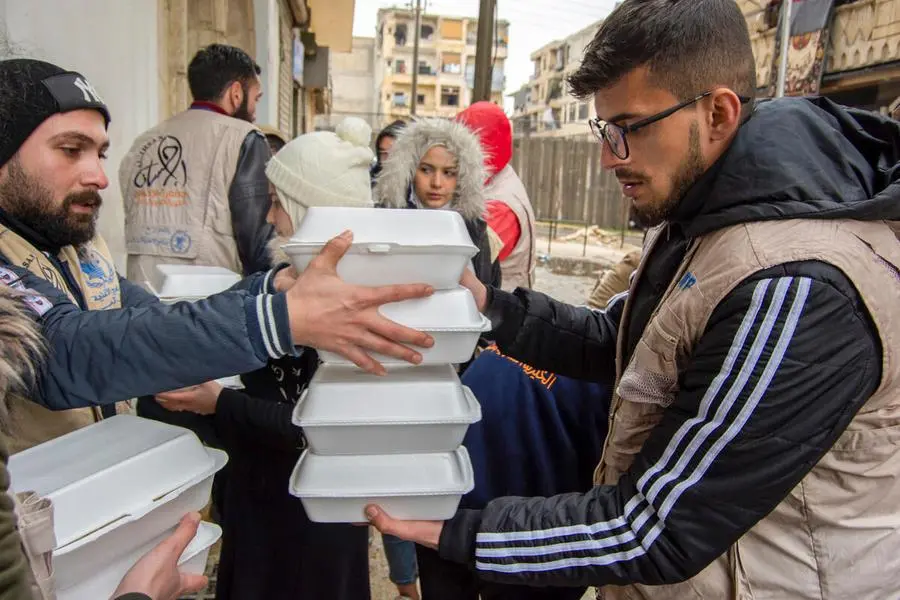PHOTO
CAIRO/ROME – The United Nations World Food Programme (WFP) has stepped up its emergency response to support victims of the devastating earthquake in Syria and Türkiye, providing emergency food assistance to nearly two million quake-affected people in the two countries through hot meals, emergency ready-to-eat food packages and family food rations.
WFP teams in the two countries are delivering immediate relief in the affected areas and at the same time assessing needs and supporting logistics efforts. Because WFP has ongoing operations in both countries, it has partners, staff and a robust supply chain in place, which meant responding to food needs could begin within the first hours of the disaster.
“Families tell me they left everything behind when the earthquake hit, running for their lives. WFP’s food is a lifeline for them. While they think about their next steps in the destruction left by the earthquake, their children can eat,” said Corinne Fleischer, WFP Regional Director for the Middle East, North Africa and East Europe. “We have scaled up rapidly and requests for more food are coming every day from municipalities and communities. We are there for them, but WFP can’t do it alone. We urgently appeal for funding to help us reach those in need.”
In Syria, in addition to providing immediate food assistance in quake-affected cities, WFP has resumed its regular general food assistance for 5.5 million people every month following a brief pause after the earthquakes. This includes regular monthly assistance either in-kind or cash-based to 1.4 million in non-government-controlled areas of the northwest.
Between 13 and 16 February, 52 WFP-contracted trucks crossed into northwest Syria through Bab al-Hawa and Bab al-Salam.
With humanitarian access expanded through the opening of two additional border crossing points from Türkiye to northwest Syria, WFP plans to use all three Turkish-Syrian border crossings, Bab al-Hawa, Bab al-Salam and Al Ra’ee, to ensure a constant reach of aid to non-government-controlled areas of northwest Syria.
Prior to the earthquake, food insecurity and poverty in Syria were already at alarming rates, with a population suffering the effects of 12 years of conflict and successive shocks. Over 12 million people across the country were categorized as food insecure, including 2.5 million people severely food insecure. In addition, 2.9 million were at risk of slipping into food insecurity.
The Syrian economy is too fragile to withstand external shocks and the earthquake-affected cities of Syria have been severely impacted by the conflict. In northwest Syria, 90 precent of the population, 4.1 million people, were already relying on humanitarian assistance prior to the earthquake.
“We rely on the international donor community to stand up for Syrians, otherwise, the 6 February earthquakes will turn an already dire situation into an unbearable scenario for millions of people,” says WFP Representative and Country Director in Syria, Kenn Crossley. “No population can face this alone after years of conflict, a pandemic, and catastrophic economic decline.”
WFP is appealing for US$230 million to provide assistance through hot meals, ready-to-eat meals, vouchers and cash to both countries.
Without sufficient resources, WFP will be forced to dramatically reduce up to 70 percent of the people it assists in Syria from July onwards, impacting some of the most food-insecure and impoverished people in the world.
-Ends-
About WFP
The United Nations World Food Programme is the world’s largest humanitarian organization, saving lives in emergencies and using food assistance to build a pathway to peace, stability and prosperity for people recovering from conflict, disasters and the impact of climate change.
Follow us on Twitter @wfp_media
For more information:
nora feidi
account director, corporate
www.asdaabcw.com | www.bcw-global.com
www.arabyouthsurvey.com




















